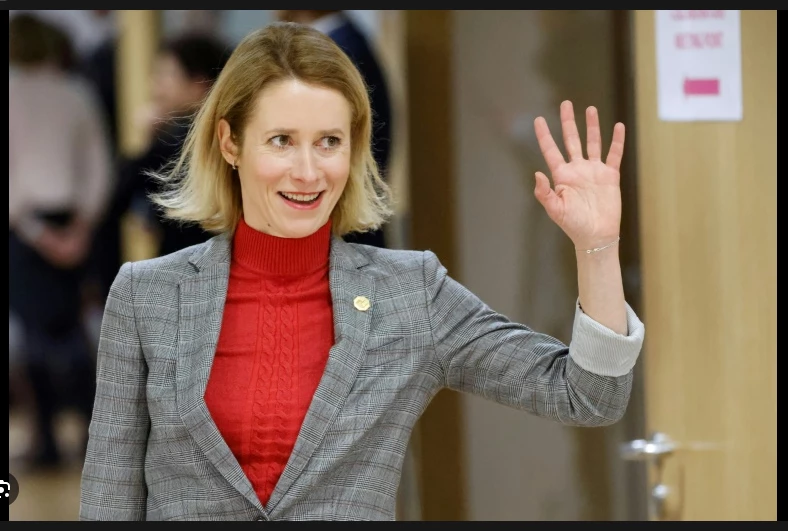Russia declares Estonian PM Kaja Kallas 'wanted'

Stay tuned with 24 News HD Android App

Russia declared Estonian Prime Minister Kaja Kallas as "wanted" on criminal charges Tuesday in an unprecedented step against its Baltic neighbours.
It was not immediately clear why Kallas, who has led Estonia since 2021, was listed as "wanted".
Relations between Moscow and EU member Estonia, which is home to a sizeable Russian minority, have remained tense since the end of the Cold War.
Russia has frequently chided Estonia for removing Soviet-era war monuments, which Tallinn sees as unwelcome symbols of its occupation under the USSR.
The Russian interior ministry's database of wanted people showed Kallas as "wanted under the Criminal Code" without naming the charges, accompanied by a picture of the leader.
There was no immediate reaction from Estonia.
Earlier in February, Moscow summoned diplomats from its three Baltic neighbours after accusing them of trying to "sabotage" next month's Russian presidential election.
Lithuanian minister wanted in Russia slams Kremlin
Lithuania's culture minister on Tuesday said Russia was distorting facts after Moscow declared him and Estonia's prime minister and another Baltic official wanted for "hostile actions".
Relations between Russia and the three Baltic nations, all former Soviet republics, are already tense over their staunch support for Ukraine.
Russia declared the officials, notably Estonian premier Kaja Kallas, as "wanted" amid a spat over the removal of Soviet-era war memorials in their countries.
Lithuanian Culture Minister Simonas Kairys and Estonian State Secretary Taimar Peterkop were also added to the list by Moscow's interior ministry.
"The regime is doing what it has always done: it is trying to stifle freedom... and to continue to create its own version that is at odds with facts or logic," Kairys told AFP in a statement.
Russian foreign ministry spokeswoman Maria Zakharova said the officials were declared "wanted" over the "destruction" of monuments to Soviet soldiers.
Estonia, Latvia and Lithuania have been removing Soviet-era memorials since they gained independence and the process has gained momentum following Russia's invasion of Ukraine.
"I am glad that my work in dismantling the ruins of Sovietisation has not gone unnoticed," Kairys said.
Lithuanian foreign minister Gabrielius Landsbergis told reporters on Tuesday that Moscow's move was a "reward for the people who support Ukraine and support the fight for good against evil".
